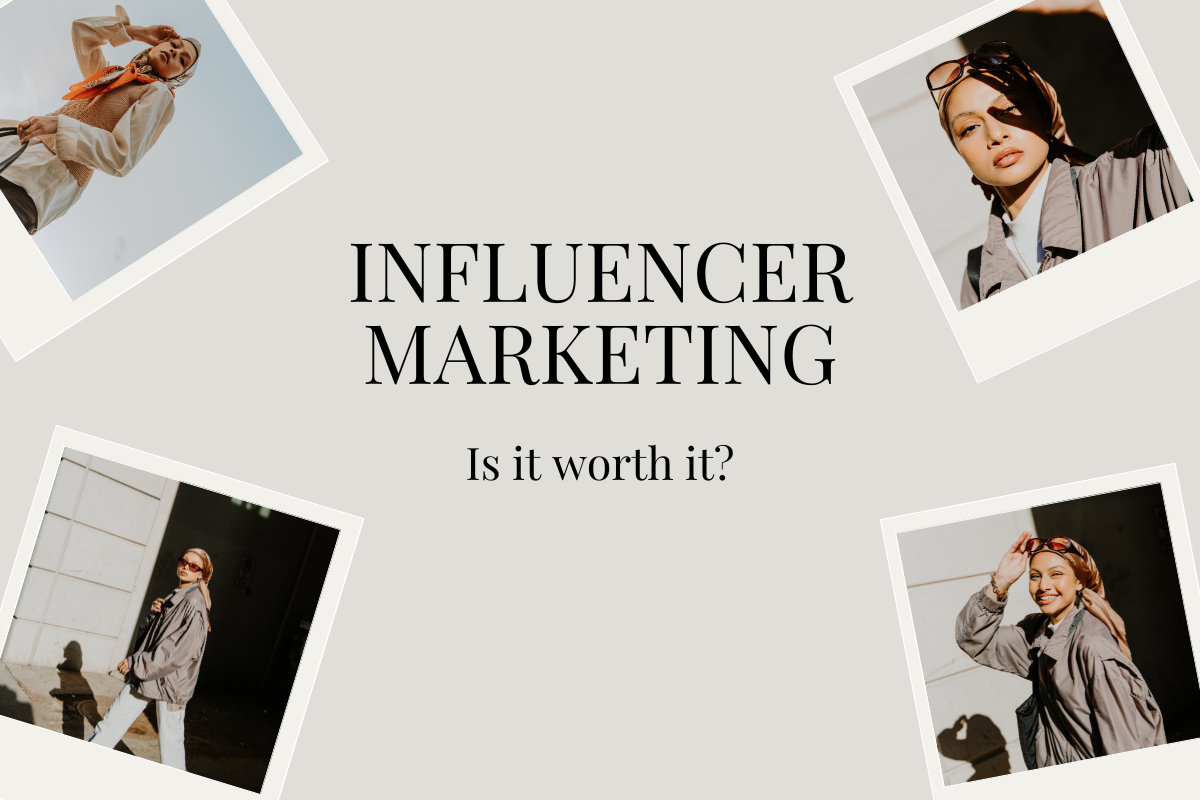Is Influencer Marketing worth it? Real lessons from small brand campaigns
Is influencer marketing worth it for small brands? This article breaks down when it works, when it doesn’t, and what to focus on if your budget is limited.
Is influencer marketing worth it for small brands? This article breaks down when it works, when it doesn’t, and what to focus on if your budget is limited.

Jul, 31, 2025
Influencer marketing has become one of the most talked-about tactics in the digital marketing world. From big-name celebrities to micro-influencers, the idea of leveraging someone else’s audience to promote your brand sounds tempting—especially when you're just getting started. But is influencer marketing really worth it for small businesses? Or is it just another expensive tactic that doesn't deliver long-term results?
Based on real experience and lessons learned from working with both new and growing brands, this article breaks down when influencer marketing makes sense, when it doesn’t, and what you should focus on instead if you're on a tight budget.
Let’s start with the good part. Influencer marketing can be a smart move—especially when you're just launching a new brand or product.
If you’re just starting out, influencer marketing can give your brand a strong initial push. Think of it as borrowing trust. When an influencer shares your product, their followers see it as a recommendation. That trust gets passed to your brand—and that’s powerful.
Even a single post from a niche influencer can result in:
This momentum is often hard to generate through paid search or organic strategies alone—especially in crowded markets. Influencers help cut through the noise faster.
People trust people more than they trust brands. And that’s why influencer marketing works so well in the early stages. An influencer’s recommendation carries weight, and this perceived authenticity can be the difference between someone scrolling past or clicking to learn more.
Influencer campaigns are also great for starting the flow of brand awareness. Once people see your product in their feed—even if they don’t buy right away—they begin to associate it with quality and relevance. That can help future campaigns (paid or organic) perform better.
On the flip side, influencer marketing isn’t a guaranteed win—especially if you’re a small brand with a limited marketing budget.
One of the biggest mistakes small brands make is hiring an influencer for a single post or a short-term project, expecting long-term results.
Here’s the reality:
Without consistency, influencer marketing doesn't build lasting awareness or loyalty. And that’s a major problem for small businesses trying to grow sustainably.
Influencer marketing is expensive—and if you want lasting results, you need repetition. That’s rarely affordable when you're just starting out.
Instead of spreading your limited budget across 1-2 influencer posts, you may get better returns from:
These methods focus on users with a clear need or intent, rather than passive viewers scrolling through their feeds.
If your goal is direct sales or leads, influencer marketing can be unpredictable. While it’s great for building awareness, it often doesn’t translate to actual conversions unless the campaign is well-structured, tracked, and scaled.
For small businesses, every dollar matters—and influencer campaigns rarely offer the same level of measurable return as PPC or SEO efforts.
If your marketing budget is limited, here’s where to focus instead:
With Google Ads, you can target people who are actively searching for what you offer. That means your message reaches people at the right moment—with high intent to buy.
Example: If you sell home office chairs, a campaign targeting "ergonomic chairs for remote work" will likely convert better than an influencer showing off their trendy workspace.
SEO takes time, but it builds real momentum. Optimizing your website and content for search engines allows you to attract consistent, free traffic over time—without paying per click.
Start with:
Build your own audience. Whether it's email subscribers or retargeted website visitors, owning your audience gives you more control—and better returns—than renting someone else's for a day.
Influencer marketing isn’t good or bad—it’s just not the right fit for every business, every time.
Use it when:
Avoid it when:
Want to talk strategy?
If you’re wondering whether influencer marketing is the right choice for your brand—or if you want help building a smarter marketing strategy tailored to your stage of growth—feel free to contact us or explore more on our blog.